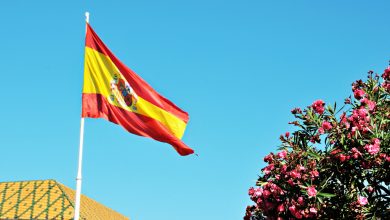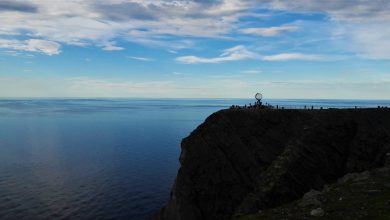The Other Side of Europe: Georgia

‘The Other Side of Europe’ is an article series providing information about the EU European (geographically or culturally) neighbour countries located between Eastern Europe and the Caucasus. It follows a series in which we explore opportunities for future enlargement. In this sixth instalment, we will look at Georgia. If you are short on time or want to learn more, check out our trivia on Georgia.
Geography and Culture of Georgia
Georgia, located on the shores of the Black Sea, is on the line that separates Europe from Asia. From the historical-cultural point of view, Georgia belongs to Eastern Europe. Georgia borders Russia to the north and north-east, Turkey and Armenia to the south, Azerbaijan to the south-east, and the Black Sea to the west. It has a population of 3,718,200, and its capital is Tbilisi. It spans across 69 700 km².
Georgian culture is particularly varied. It is essentially a mix between Russian, Ottoman and European culture, with an additionally peculiar alphabet. Georgian literature’s period of splendour was the XII century with the Georgian national poem “The leopard-skinned knight” (Vepkhistkaosani) by Shota Rustaveli. People perform traditional music with panduri, an instrument similar to lute and guitar, and Georgian flutes. Traditional songs are hymns, love melodies, and heroic ballads.
The national cuisine (ქართული სამზარეულო) has both European and Middle Eastern influences. It offers a variety of dishes with various herbs and spices. Each historical province of Georgia has its distinct traditional cuisine, such as Magrelian, Cachezian, and Imerezian. During the Supra festival, Georgians prepare a large assortment of dishes, always accompanied by a large number of wines.
As previously stressed, the Georgian alphabets are peculiar. Georgians use the three Georgian alphabets to write the Georgian language. Some minorities also use other alphabets such as Ossetian and Abkhazian. The word “alphabet” (ანბანი) derives from the union of the names of the first two letters of the three Georgian alphabets. Still, they are very different from each other.

Society and Religion
Georgians (including Mingreli, Svani, Laz, and Agiari) are around 83.8% of the current population of Georgia which is 3,661,493 (July 2006). The other main ethnic groups include Azeris, who are 6.5% of the population, Armenians – 5.7%, Russians – 1.5%, Abkhazians and Ossetians. Numerous other small ethnic groups also live in the country, including Assyrians, Chechens, Chinese, Georgian Jews, Greeks, Kabards, Kurds, Tatars, Turks, and Ukrainians. In particular, the Georgian Jewish community is one of the oldest Jewish communities in the world.
Georgia also exhibits significant linguistic diversity. Georgian, Laz, Mingrelian, and Svan are spoken within the Southern Caucasian family of languages. Southern Caucasian groups other than the Georgian ethnic ones often speak their native languages along with Georgian. The official languages of Georgia are Georgian and Abkhazian in the autonomous region of Abkhazia. Georgian, the official language, is spoken by 71% of the population, 9% speak Russian, 7% Armenian, 6% Azerbaijani, and 7% other languages. Georgia’s literacy rate is around 100%.
More than 82% of Georgia’s population practices the Orthodox Christian confession, and the Georgian Orthodox Church is an influential institution in the country. After state atheism, imposed by the USSR when Georgia was part of the federation, sources today report that over 40% of Georgians are non-religious or atheists. Religious minorities in the country include Orthodox Russians (2%), Armenian Christians (3.9%), Muslims (9.9%), Roman Catholics (0.8%), as well as a considerable Jewish community and various Protestant minorities.

Economic Context
Throughout modern Georgian history, agriculture and tourism have been the driving forces of the Georgian economy due to the favourable climate and topography. For most of the 20th century, the Soviets imposed a planned economy on Georgia. After the fall of the Soviet Union, Georgia initiated major structural reforms designed to transition to a free-market economy. However, like so many other post-Soviet states, it faced severe economic collapse.
The civil and military war of the conflicts in Abkhazia and South Ossetia aggravated the crisis. Agricultural and industrial production decreased, and in 1994, the GDP was reduced to a quarter of what it was in 1989. The first financial aid from the West came in 1995, when the World Bank and the IMF gave a credit of 206 million US dollars and Germany a loan of 50 million German marks. In 2001, 54% of the population did not earn enough to be above the national poverty line, but by 2006, this figure had fallen to 34%. In 2005, the average monthly income of a family was 347 lari (about 180 Euros).
Since the beginning of 2000, positive developments have been observed for Georgia’s economy. In 2007, the real GDP growth rate reached 12%, making Georgia one of the fastest-growing economies in Eastern Europe. Nevertheless, the country still has a relatively high unemployment rate (12.6%) and a low income compared to the European average. Georgia has gone from being “a near-failed state in 2003 to a relatively healthy market economy in 2014.”
According to the 2018 Transparency International report, Georgia is the least corrupt nation among those in the Black Sea region. It is also the only state in the area where the press is not “unfree”. Since 2014, Georgia has been part of the European Union’s Free Trade Area. The EU accounts for over a quarter of Georgia’s total trade turnover.

State of Relations Between Georgia and the EU
Georgia and the European Union have maintained relations since 1996, implemented in 2006 by the first 5-year Action Plan in the context of the European Neighborhood Policy (ENP). In 2013, Tamar Beruchachvili, deputy minister for Georgia’s European and Euro-Atlantic integration took an important step. He stated that Georgia had no plans to join the customs union of Belarus, Kazakhstan, and Russia. Therefore, the following year, the association agreement was fully ratified by Georgia and all EU member states. On 18 December 2014, the European Parliament approved the association agreement. The vote tally was 490 votes in favour, 76 against and 57 abstentions. The agreement entered into force on 1 July 2016.
In 2019, President Zurabishvili stated that his country is ready to pursue negotiations on culture, education, transport, and economic issues, albeit in that it is not currently possible to become a full member of the European Union. Frightened by Russian proximity, Georgia sees in the West, indeed in the European Union, a guarantee, the security of peace and above all a perspective for the future. “We must enter from every door – said Zurabishvili – we must try every road, maybe even the less usual ones”. The idea the president had in mind is to recreate Europe in Georgia. Chapter by chapter, Georgia wants to comply, to apply European laws on its territory even if it is not formally a candidate country.
The Road Ahead
Georgia has shown huge economic but above all social and political resilience. It is one of the freest countries with respect to freedom of the press and corruption in the region. Georgia’s ruling class has expressed its desire to join the European Union since 2013.
Undoubtedly, however, the Caucasus region is undergoing different geopolitical thrusts. Increased Turkish influence, especially in neighbouring Azerbaijan and Russian influence, especially in Armenia. The Russian presence turned violent in the 2008 war when Vladimir Putin’s country bombed Georgian territory. The geopolitical situation could certainly be an obstacle for Georgia’s accession to the European Union. Membership in NATO would certainly improve the situation, and it is something that Secretary-General Jens Stoltenberg has looked favourably upon.





